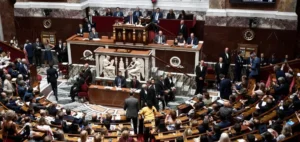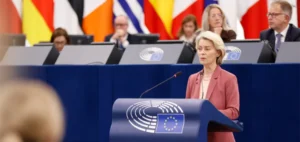Turkey is embarking on a large-scale transformation of its national electrical grid, supported by $70 million in funding granted by the Climate Investment Funds (CIF). This initiative, co-developed with the European Bank for Reconstruction and Development (EBRD) and the World Bank Group, aims to double wind capacity and quadruple solar capacity by 2035, as part of the country’s goal to achieve carbon neutrality by 2053.
Currently, Turkey exploits about 3% of its solar potential and 15% of its terrestrial wind potential. To increase renewable energy production, substantial investments are needed in electricity transmission and distribution infrastructure. CIF’s financial support will thus enable the implementation of a $790 million project to strengthen the electric grid, integrate advanced technologies, and increase energy storage capacity.
Toward a More Flexible and Resilient Electric Grid
To enable the integration of solar and wind energy, the plan includes investments in smart infrastructure, such as decentralized electric charging stations and digitization of the distribution network. An additional storage capacity of 7,500 MW is also planned, addressing the variability of renewable energy sources and ensuring a stable electricity supply.
These efforts aim to adapt Turkey’s electric grid to the challenges of renewable energy intermittency. By 2035, this transformation could allow for the integration of an additional 60 GW of wind and solar energy, equivalent to 21.6 Mtoe (million tonnes of oil equivalent) of renewable energy, capable of powering approximately 70 million households per year.
International Collaboration for a Sustainable Energy Future
This project is part of the CIF’s Renewable Energy Integration program, launched in 2021 with the support of the G7, dedicated exclusively to the integration of clean energy. The program aims to catalyze investments necessary to build energy systems capable of absorbing significant volumes of intermittent energy.
The Turkish government has already made significant progress in energy transition and carbon emission reduction. According to Osman Çelik, Deputy Minister of Treasury and Finance, this initiative is crucial for achieving the country’s sustainable development goals. “Our path to zero emissions by 2053 requires a strong commitment to increasing our renewable energy capacity,” he said, highlighting the importance of this cooperation with CIF, the World Bank, and the EBRD.
The Role of International Partners
Nadia Petkova, Director of Impact and Partnerships at the EBRD, emphasized that the CIF’s REI program is essential for increasing the flexibility of energy systems and facilitating off-grid access to renewable energy. The EBRD will support the implementation of this ambitious plan, helping the Turkish government reach its target of adding 60 GW of wind and solar capacity by 2035.
In addition to institutional partners, private sector players are also involved in this project. They will play a key role in integrating smart technologies and optimizing energy storage, making large-scale deployment of renewable energy possible.






















